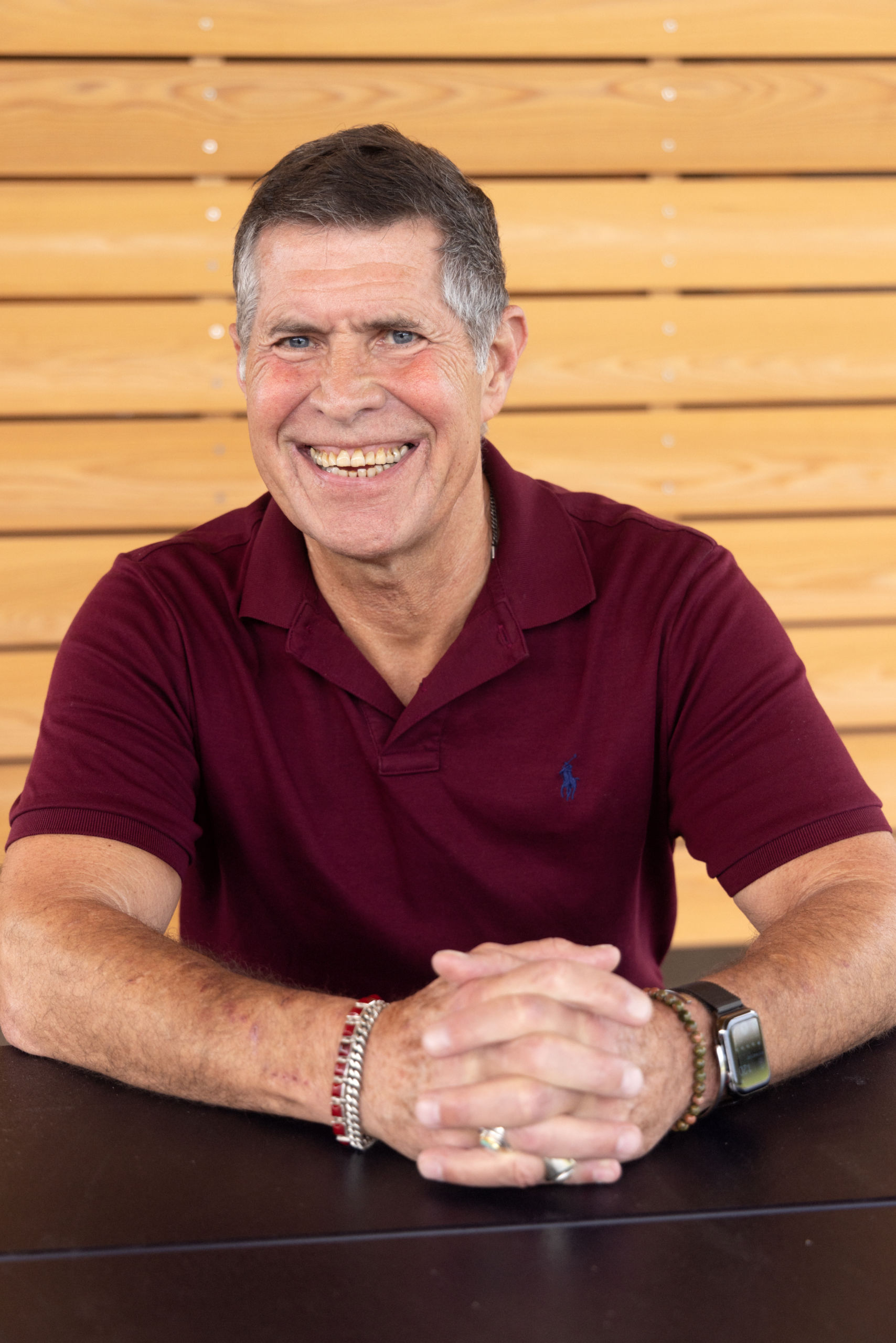MICHAEL WILSON // PORTRAITS OF JONES VALLEY TEACHING FARM
March 17th, 2022Michael Wilson
Interviewed by Amanda Storey
Photography by Cary Norton
—

When JVTF first began to dream about integrating our work at a school level, we thankfully found the force that is and would be Dr. Mike Wilson at Glen Iris Elementary. We wouldn’t be where we are today without Dr. Wilson’s leadership and willingness to open Glen Iris’s doors to Grant, Sara, Steph, Zoe, and Katie. We grew together in so many ways, and it provided the foundation for our work with Birmingham City Schools. Today, we are seeing that same thoughtfulness and care as he leads the Magic City Acceptance Academy and helps facilitate a community where all learners are empowered to embrace education, achieve individual success, and take ownership of their future in a brave, LGBTQ-affirming learning environment. In his free time, you can find him at Glen Iris Elementary assisting with watering on the weekends, scattering flower seeds all over the place, and continuing to celebrate the magic that he helped create and grow over all these years.
Why did you want a garden at Glen Iris elementary school?
Just having been a kid that spent his life outside at the creek, at my grandparents. In thinking about food in relationship to learning, right before we started working on the concept I was in Denver, and I drove around and I saw these wonderful community gardens as was Jones Valley at the time, and I just said, “I’ve got space to do this.” So it started out with “I’m going to build this space where kids can learn outside through food.” The community really kicked in and we were able to raise the funds and long story short, we were able to build this learning space where kids can go and not just see what you’re trying to teach them, they can actually create, and they can have a product—which just happens to be food or flowers. Then they learn about the whole environmental thing about how the pond has a bog area, and it has its own ecosystem, and how that supports the plants around it and how the flowers support the pollination. It’s just incredible stuff.
For me, the biggest reward I’ve ever gotten is watching kids who had no idea that sweet potatoes grew underground, or what okra looked like growing, or the different colored cauliflowers, things like that. It’s just amazing to watch the wonder. We don’t challenge kids to wonder enough. So, it’s like I said to you the other day, kids in third grade are learning measurement, so why are they up in the classroom with some kind of worksheet where they’re measuring this little stuff when we have rectangles and whatever else shape you want to make out in that? So they can really measure, and they can do area, and they can do volume. How much dirt you think this raised bed holds? How many gallons of water are in the pond? How many gallons flow out through the creek? I mean, it’s incredible.
So we start with the kids, you always start with the kids because something has to become part of the culture and grow up through the culture. So you start with the kids when they’re little, and hopefully they remember it as they become active adults.
Why do you love to plant as many flowers as you do?
Well, so sustenance is one thing, and growing the crops, but flowers are just joy. That’s the only word. Do you know that as much time as I spend in that garden, that I can walk through there with you right now and find something I haven’t noticed before? Look at me, I’m learning every day. I learn something new every minute I spend in that space. That space is magical to me, and I will get emotional. When you see kids have those aha moments, as I’ve seen when we grew the pumpkins, we had just gotten that portable kitchen because we didn’t have any other way to cook. So every kindergarten class is doing integrated lessons about pumpkins, and they’re cooking with the pumpkin. So that’s connecting the inside and the outside, which is what it’s all about. But that space is magical, and I don’t think that I can ever leave it.
The thing for me really is that it’s also very therapeutic. It’s where I can go on the weekends and de-stress, and while I’m de-stressing I can work through some of the things that have gone on during the week, while I’m pulling weeds. I really don’t have to think to pull weeds, just know where I am and know what’s around me. So it just kind of is your rewind, and you look at what’s gone on this week and what’s going to go on next week, and you’re surrounded by the beauty that you’ve helped create. Why do I plant flowers? They’re so pretty. There is one sunflower out there that is just the most incredible thing, and as you come down the street it is peeking at you and saying, “hello” and “welcome to the space.” It’s the first thing I see when I drive up now every day. I just love to get in the dirt, it’s about the dirt. The dirt sustains us.
As we think about the new school that you just opened up, how important is it for all students to feel that sense of safety? Can we talk more about it?
So all you need is a space, and some seeds, and some water, and maybe a little fertilizer, not too much. But with the same tools, people who are different can grow the same thing. Why can’t the world we live in accept that we as people – though we are of different hues, and different origins, and different ethnicities – are the same? We eat the same. Our food comes from the same place, in the ground. Why can’t we embrace the commonality that we have as human beings? It starts in schools, with the culture in schools, where this kid is ostracized for this and made fun of that. So, I’m meeting kids now, that because they identify as LBGTQ+ and for other reasons, that are so full of anxiety that they can destress, and they have to do it every day. Can you imagine having to go to a space every day that you hate? Every day. But all of a sudden somebody says, “here’s a brave space where you’re going to be able to be you, and the adults around you are going to do everything they can in order for you to be you. Instead of just ignoring the fact that we’re all really different, and we all have a right to be.
All of those kiddos all those years that experienced the garden the way that they did, what do you hope they carry with them today as grown people? What do you hope that they carry with them today as they walk through the world?
I still think the most important things are the three C-words: collaboration, compassion, and community. If they got that out of it, then what a win for what we’ve done together. You know, eating healthy or being healthy—yeah, that’s all part of it—but if you have compassion for other people and if you learn to collaborate with other people across the community and especially with people that you don’t know who are different from you, you’re building community.
